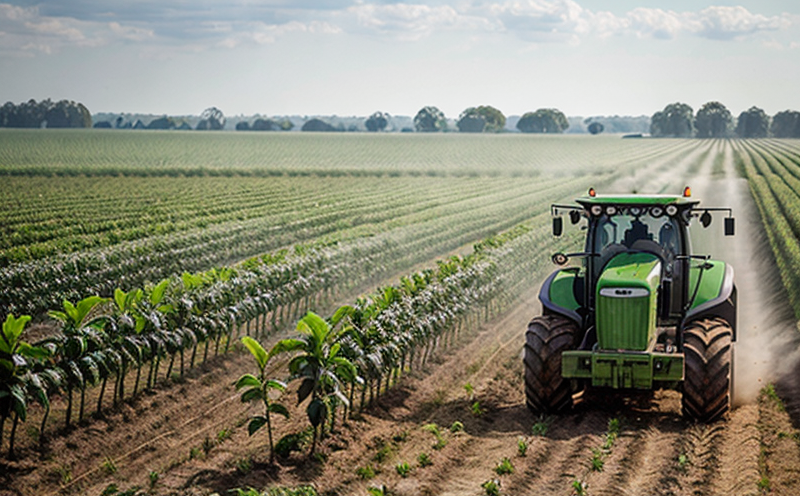JIS K0102 Wastewater Testing of Agricultural Chemicals
The Japanese Industrial Standard (JIS) K0102 specifies methods for determining the presence and concentration levels of agricultural chemicals in wastewater. This standard is crucial for ensuring compliance with environmental regulations and safeguarding water quality, particularly in areas where intensive agriculture practices are prevalent.
Understanding the scope of JIS K0102 involves recognizing its relevance to sectors such as farming, food production, and environmental management. The testing aims at identifying residues from commonly used agricultural chemicals like pesticides, herbicides, fungicides, and fertilizers that may enter water bodies through runoff or direct discharge.
The standard outlines procedures for sample collection, preparation, and analysis. It emphasizes the importance of accurate and precise measurements to prevent overuse or misuse of these chemicals, which can lead to environmental degradation and health risks.
Key components include:
- Sample Collection: Proper sampling techniques are critical to ensure representative results. This involves collecting water samples from various points in the wastewater system to account for spatial and temporal variations.
- Preparation: Samples must be preserved under controlled conditions until analysis can take place, using appropriate stabilizing agents if necessary.
- Analytical Methods: Various analytical techniques are specified, including chromatography, spectrophotometry, and gravimetric methods. Each method is chosen based on the specific chemical being tested for its sensitivity and specificity.
The acceptance criteria in JIS K0102 are stringent to ensure that even trace amounts of agricultural chemicals do not exceed safe limits. This approach helps protect aquatic ecosystems and human health by setting benchmarks for acceptable levels of contaminants.
Compliance with JIS K0102 is essential for companies involved in agricultural production, processing industries, and environmental protection organizations. Non-compliance can lead to severe penalties under environmental laws and damage reputations through negative publicity.
Benefits
- Environmental Protection: Ensures that agricultural chemicals do not exceed safe levels in water bodies, protecting aquatic ecosystems and human health.
- Compliance: Helps companies comply with environmental regulations, avoiding legal penalties and reputational damage.
- Risk Mitigation: Early detection of potential issues allows for corrective actions to be taken promptly.
Competitive Advantage and Market Impact
- Enhanced Reputation: Compliance with JIS K0102 can enhance a company's reputation, attracting customers who prioritize environmental responsibility.
- Increased Efficiency: By preventing overuse of chemicals, companies can reduce costs and improve operational efficiency.
The standard also drives innovation in agricultural practices by encouraging the development of more sustainable methods that minimize chemical runoff into water bodies. This has a positive market impact, fostering demand for products and services that align with environmental standards.
Use Cases and Application Examples
| Case Study | Description |
|---|---|
| Farmers' Cooperative | A cooperative of local farmers uses JIS K0102 testing to monitor the runoff from their fields. This helps them identify areas where chemical usage needs adjustment. |
| Water Treatment Plant | A water treatment plant integrates JIS K0102 into its quality assurance protocols, ensuring that agricultural chemicals are adequately removed before discharge into local rivers. |
| Agricultural Research Institute | An institute uses the standard to evaluate new methods of chemical application in agriculture. This helps them develop more efficient and environmentally friendly practices. |





